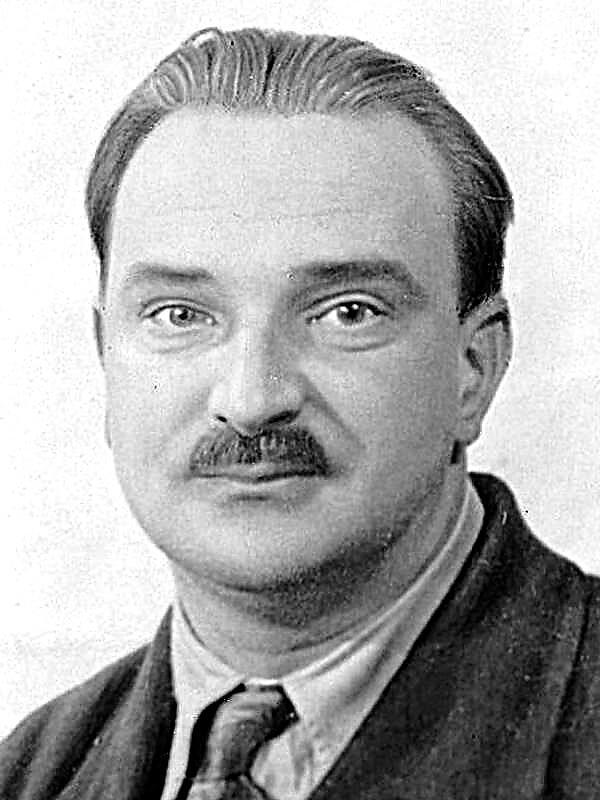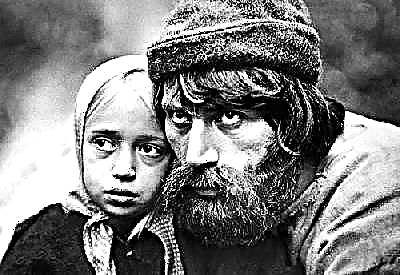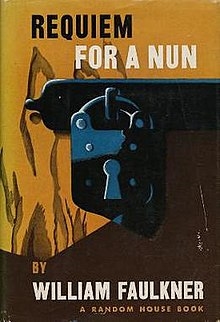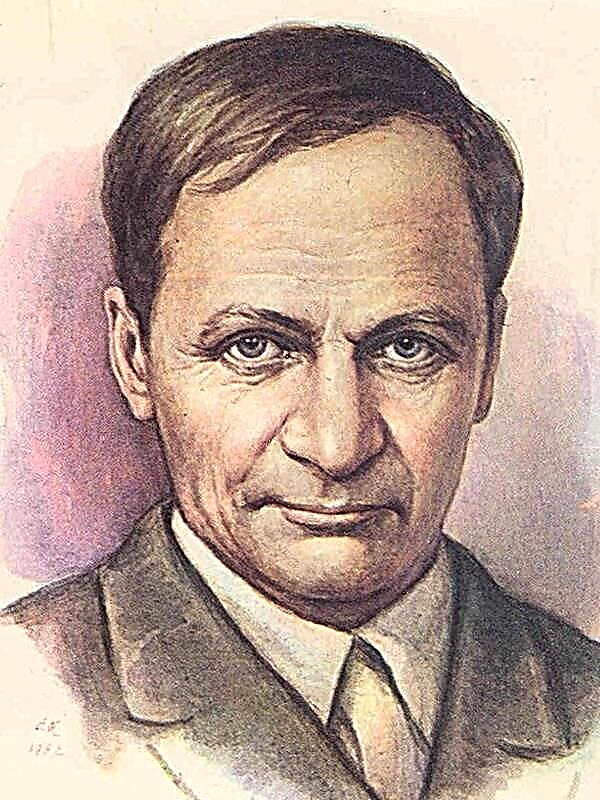The story of Nikolai Semenovich is known to every student. It is based on the sad love story of a serf actress and hairdresser - a “dumb artist”.
History of creation
This story was first published in 1883 in the second issue of "An Art Journal with an Art Album." The story has a dedication: “Holy memory of the blessed day of February 19, 1861” (that is, the day of the abolition of serfdom and the Sabbath “commemoration of the departed”), as well as the subtitle - “the story on the grave”.
As an epigraph, N. Leskov chose the words of the funeral song “Their souls are set up in the good.” By this technique, the author shows us that the work is dedicated to the victims of serfdom, who went through a painful fate and died at the hands of tyrants-lords.
The story "Dumb artist" is associated with the difficult fate of the common people in the era of serfdom (which is also confirmed in the reading process:
After all, ordinary people must be protected, ordinary people are all suffering.
The prototypes of the heroes of the work - Lyubov Onisimovna and Nikolai Kamensky - became real persons - Praskovya Ivanovna Kovaleva-Zhemchugova and Nikolai Sheremetyev. The story also features the count’s brother, Sergei Kamensky (probably the prototype of Count Sheremetyev’s grandson).
Genre, direction
The work is a "story on the grave" and is a kind of memorial speech on the deceased. This work can be considered confessional and hagiographic literature, as evidenced, in particular, by researcher L.I. Vigerina.
The story "Dumb artist" can be attributed to the literary direction of realism. The story of the "artist who" worked on the dead "can be considered an insertion mini-novel, although in essence it only shows how a person can suffer because of his skill and only because he fulfills the will of his masters (although they and cruel to those who are subordinate to them).
Essence
The narrative in the story “Dumb Artist” begins from afar, with the mention of a special category of “artists” who have achieved the greatest skill in various fields of activity (in sewing, painting, coinage, etc.). In Russia, according to the narrator, there was also a master "in the same extraordinary kind of art." The craftsman was called Arkady Ilyich, and he was a hairdresser and make-up artist ("stupid artist") at Count Kamensky. A storyteller's nanny and his brother, Lyubov Onisimovna, who served in the youth as a serf actress with the same column, lead their story about him. This is what the story says.
The old woman’s monologue is a love story between herself and the “stupid artist”. It was a forbidden feeling, since both heroes were serfs, and as a result they had to hide it in every possible way. Once the young talented Love Onisimovna happened to replace a sick actress on the stage, and the count, knowing that “Lyuba will not ruin the role,” ordered the girl to receive “camarine earrings,” which was a sign of the count's special mercy towards the girl. But this was not pleasant enough - thus, the girls were elevated to “odalisks,” that is, the concubines of the lord.
At the same time, the brother of Count Kamensky, Sergei Kamensky, asks to send a hairdresser to shave him. However, Count Kamensky does not immediately agree. After convincing his brother that he needed to shave the poodle, Sergey Kamensky was waiting for Arkady at his place. He has a pistol loaded with Circassian bullets and ten gold coins in case he wins. However, Arkady is not afraid to die, as he knows what awaits his beloved. He is not afraid to be bold, saying that even if the count dared to reach for the gun, he would cut his throat with a razor. And then Arkady decides on a desperate act. He decides to take Lyubov Onisimovna to a neighboring village in order to secretly marry her, and then go to Turkish Khrushchuk, where many people fled from Count Kamensky.
Unfortunately, the escape ended in failure. Having barely managed to get to the priest’s house and paid to secretly marry them, the young people heard the sound of the door ring and realized that the chase had overtaken them. Although they hid, the priest betrayed their whereabouts, as a result of which Arkady and Lyubov Onisimovna were seated in a sleigh and taken back to Count Kamensky.
As a result, they began to torment Arkady right under the room of Lyubov Onisimovna, and when she tried to strangle her own scythe, she fainted, and woke up in the barnyard. There she was taken under her protection by Aunt Drosida, with whom Lyubov Onisimovna lived for three years. All this time, Arkady fought at the front, where the count sent him. But by the time the "stupid artist" returned with the rank of officer and was preparing to redeem Lyuba from the serfs, a misfortune happened - at night Arkady stabbed an innkeeper. After the lover’s funeral, the heroine begins to drink, and subsequently it becomes a habit. The grave to which she constantly brings her pupils is the very grave of the "dumb artist" Arkady, whose fate was very unhappy, at the same time making his beloved girlfriend unhappy. The main events are described in more detail. in summary.
The main characters and their characteristics
Although the story begins with the words of the author - the narrator (narrator), the main character here is actress Lyubov Onisimovna.
- Lyubov Onisimovna - "Artist", like Arkady, but only in acting. This is a talented and beautiful girl who could achieve a lot in life. The fates of Aunt Drosida and Love Onisimovna are similar (both suffered because of unhappy love). The life of the heroine is somewhat reminiscent of the life of a saint. Having experienced and experienced grief, she could not find happiness with her beloved, but she retained an amazing beauty like a saint: “Lyubov Onisimovna was not very old then, but as white as a moon; her features were delicate and delicate, and the high camp was completely straight and surprisingly slim, like a young girl’s. ”
- Name Arkady translated means “resident of the country of Arcadia,” that is, the historical region of Greece, where cattle breeding predominated; figuratively translated as “shepherd”. Thus, we get a reference to bucolics, idyllic works. The name Love means a bright, sincere feeling of love. Arkady sacrifices himself for his beloved, and this is a big price for happiness. In addition, Arkady is a daredevil (he is not afraid of death from the bullets of Count Sergey, since his beloved’s life is in danger, and he himself is not afraid to die). Perhaps if Arkady and Lyubov confessed their love to the count, everything would have turned out differently, and they would have mercy? Alas, we cannot know this. Arkady’s actions, from the point of view of the count, are senseless and illegal, but from the point of view of the folk tradition of “kidnapping the bride,” there is nothing reprehensible in stealing a girl from a stupid artist.
- Role of the author also important, but we can evaluate it only after reading the entire work as a whole. The narrator tells us that not all masters were recognized at the time, and especially did not like those who did something dishonest (this is the story of the “artist who“ worked on the dead ”), although giving the banker’s face“ an expression of a blissful interview with God ”was committed without malicious intent, but only by order of his "fortunate heirs." He suffers from the hands of the people, because he went against their interests and did not take into account that the banker "robbed the whole city." We see that, having stolen Lyuba, Arkady also violated the established law of life and left the submission. His actions can be understood and justified, but at the same time it is obvious that, having chosen for himself his own well-being, he could thereby outrage his brothers in misfortune, the same serfs who would like to escape, but could not (remember the unfortunate, planted on a chain in the basement along with the bears), and therefore he involuntarily dooms himself and his beloved to suffering.
- Counts Nikolai and Sergey Kamensky - Representatives of the nobility and, accordingly, the authorities in the story. Of the role in the work is far from the last. Both of them are cruel and like to keep people at bay (Nikolai keeps the peasants in the cellars, and Sergei scares them with pistols, which clearly indicate that in which case the count could cause an accidental offender to a duel).
- Aunt Drosidprobably also lived an unhappy life, once addicted to the "plaque" with vodka. We know little about her, she herself does not want to talk about the past: “I will tell you everything, girl, girl. Whatever happens if you express me, and I, too, am like you, and I’ve worn this motley not all my life, but I have also seen a different life, but God forbid to remember that, but I’ll tell you: don’t lament that I got into exile in the farmyard - it’s better to exile, but beware of this terrible placard ... ” She is a kind woman, because she tried to protect Lyubov Onisimovna from an evil potion as long as possible, supported her, but as soon as it turned out that Arkady was killed, after his funeral Drosid allowed the girl to "pour coal."
Themes and Issues
- The main theme of this story is the plight of serfs until the abolition of serfdom. Their life can be compared to slavery: nobody considered them to be people.
- Issue based on the lack of will of Russian peasants under the control of the landowner. Because of this, there are problems of sexual slavery of a Russian woman, cruelty of higher persons in relation to lower people, venality of priests and social injustice.
- Also acute theme of creativity. Not everyone and not always can appreciate the talent of the “artists” of their craft, but, on the contrary, it is very easy to condemn without knowing the true state of things (Lyuba and Arkady suffered for nothing). It is no coincidence that the story begins with a story about how “artists” are treated abroad and in Russia. The fate of creative talented people is always difficult and unhappy, and few can appreciate the efforts of such craftsmen, as well as their work.
- Another important topic is these are the wrong priorities of our ancestors. A person in the time of N. Leskov was appreciated not for his qualities, but for his belonging to one or another estate, and this is a completely unfair attitude.
- And another no less significant topic - love. Lyubov Onisimovna and Arkady could not live without each other, but their escape, and therefore rebellion against established rules, could not be overlooked by the count and the people around him. Love as a great and noble feeling justifies their actions, but, one way or another, dooms the heroes to suffering. Society does not accept people who decide to act according to the will of love, does not want to be on their side. Therefore, the idea of limiting your personal happiness so sharply arises in this work.
The main idea
The meaning of the story “Dumb Artist” is the need for equality in society and protest against social injustice, which corrupts both slaves and masters. Stratification of society leads to the degradation of all classes. Nobles become cruel, selfish and unscrupulous slaveholders, whose ignorance and depravity negatively affect the life of the country. Peasants drink themselves under the yoke of a terrible and bleak fate.
Another important idea of the text is that even if you are a master of your craft, there will always be people who will use you and limit your freedom, thereby destroying your right to happiness. In this situation, there are only two ways - either the path of humility or rebellion. Moreover, to justify any action, any even seemingly wrong act can only be sincere love for a person or a cause. The artist who “worked on the dead” worked for the sake of work, he was a master of his craft, he worked diligently, but in the end, since he went against moral ideas and gave the false banker an “expression of a blissful interview with God”, he suffered and became a victim of popular anger. But he loved his job, performed it with zeal, like every person who sincerely loves his job, so what is he to blame ?!
What does it teach?
The story teaches that you can’t be dependent on anyone, you need to be brave and, based on everything in love, strive for truth and justice. True love does not have such barriers that it could not overcome. But not everyone can understand this, and therefore Arcadia and Love were convicted for their behavior, considering them rebels. We learn from the heroes of their stamina and endurance and we understand that life is not always true with talented and brave people.
The sufferings of Lyubov Anisimovna are like the sufferings of a saint. Her whole life rests on a great feeling of love for her Arkasha, and we should learn from her steadfastness, fidelity and infinite kindness to her students, who replaced her native children. After all, the kind heart of this poor woman seems to be able to contain all the love and all the pain of the common people.












